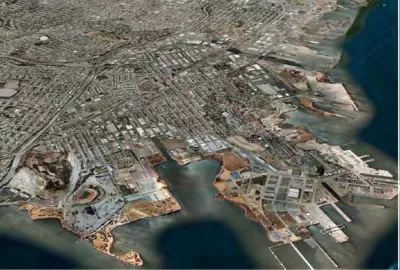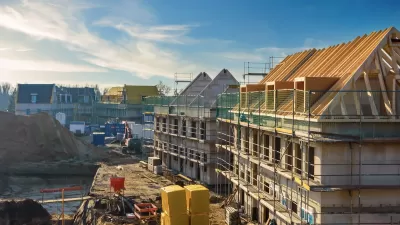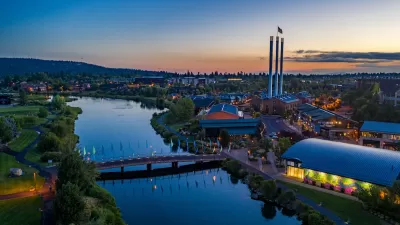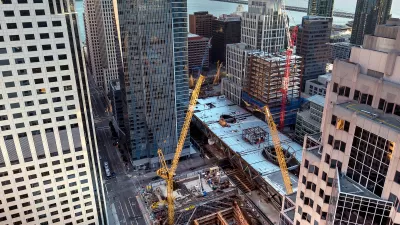Plans for numerous large-scale developments in the region mean thousands of housing units should be on the way, but constant delays and setbacks have left projects nowhere near completion.

"At a time when housing is needed as soon as possible to stem the tide of displacement and homelessness, at least 75,000 units in the [San Francisco] Bay Area are part of mega-developments — mostly on former industrial or military sites — that are frequently sidetracked for years or even decades due to long approval processes, high infrastructure costs, complicated environmental cleanup issues and financing difficulties," writes J.K. Dineen.
Three San Francisco redevelopment projects planned almost a decade ago — Hunters Point Shipyard, Treasure Island, and Parkmerced — will add 27,500 units to the city’s housing stock. But the projects are not close to delivering the affordable housing that the city desperately needs.
"While the projects look promising on paper, the reality has been different. After nine years, only 350 homes — 1.3% of the total — have been completed. Even as housing prices have skyrocketed and developers have scrambled to build condos and apartments, progress at the three mega-developments has languished," says Dineen.
The Bay Area has seen some megaproject successes, but critics say these larger, costlier developments are not the best strategy for tackling the state’s dire housing crisis, notes Dineen. "While the state is pressuring communities to build their fair share of housing, megaprojects allow politicians and planners to take credit for permitting lots of units, giving them political cover when downsizing, delaying or rejecting smaller infill housing projects that would actually get built, said state Sen. Scott Wiener, D-San Francisco."
FULL STORY: Bay Area megaprojects fail to deliver on big housing promises

Rethinking Redlining
For decades we have blamed 100-year-old maps for the patterns of spatial racial inequity that persist in American cities today. An esteemed researcher says: we’ve got it all wrong.

Planetizen Federal Action Tracker
A weekly monitor of how Trump’s orders and actions are impacting planners and planning in America.

Walmart Announces Nationwide EV Charging Network
The company plans to install electric car chargers at most of its stores by 2030.

New State Study Suggests Homelessness Far Undercounted in New Mexico
An analysis of hospital visit records provided a more accurate count than the annual point-in-time count used by most agencies.

Michigan Bills Would Stiffen Penalties for Deadly Crashes
Proposed state legislation would close a ‘legal gap’ that lets drivers who kill get away with few repercussions.

Report: Bus Ridership Back to 86 Percent of Pre-Covid Levels
Transit ridership around the country was up by 85 percent in all modes in 2024.
Urban Design for Planners 1: Software Tools
This six-course series explores essential urban design concepts using open source software and equips planners with the tools they need to participate fully in the urban design process.
Planning for Universal Design
Learn the tools for implementing Universal Design in planning regulations.
City of Moorpark
City of Tustin
City of Camden Redevelopment Agency
City of Astoria
Transportation Research & Education Center (TREC) at Portland State University
Regional Transportation Commission of Southern Nevada
Toledo-Lucas County Plan Commissions





























